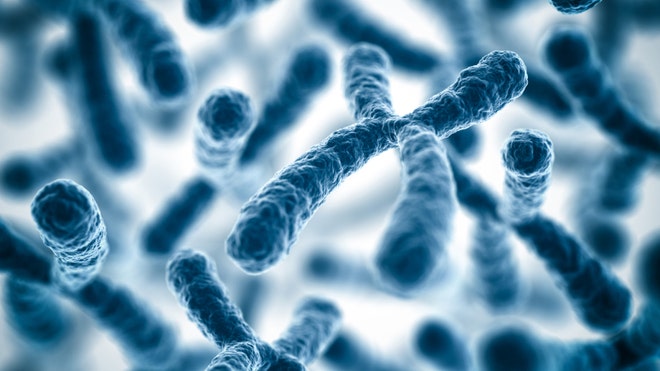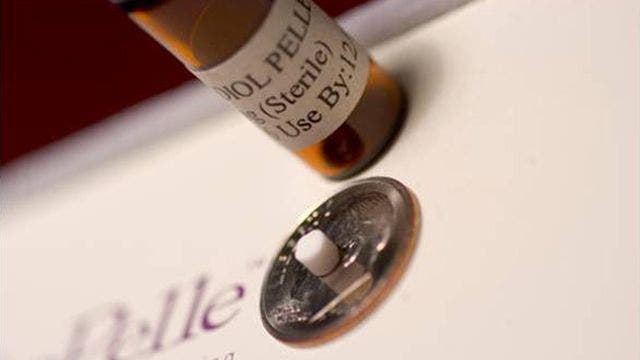 US scientists say they have moved a step closer to being able to grow a complete human ear from a patient's cells.
US scientists say they have moved a step closer to being able to grow a complete human ear from a patient's cells.
In a new development in tissue engineering, they have grown a human-like ear from animal tissue.
Read More
 Scientists Find Way to Silence Extra Chromosome that Causes Down Syndrome
Scientists Find Way to Silence Extra Chromosome that Causes Down Syndrome
For patients suffering from Down syndrome, the source of their condition can be traced back to just one extra chromosome inherited during development – chromosome 21.
Read More
 Obesity is in your genes, according to a study which found that one in six people inherits a trait which makes them feel less full after eating.
Obesity is in your genes, according to a study which found that one in six people inherits a trait which makes them feel less full after eating.
People with a mutation in a gene known as FTO have higher levels of a "hunger hormone" in their blood which make them feel hungry again shortly after eating.
They also have greater activity in regions of the brain linked to the control of eating and reward when shown pictures of appetising food, researchers found.
Read More
 Genetic screening could be offered to all couples undergoing IVF in future following the development of new tests which can dramatically increase the chance of success.
Genetic screening could be offered to all couples undergoing IVF in future following the development of new tests which can dramatically increase the chance of success.
Scientists have announced the birth of the first baby using a new genome sequencing technique which could “revolutionise” fertility treatment, bringing down the costs of tests which could boost pregnancy rates by up to 50 per cent.
Read More
 Approximately 60,000 Americans are diagnosed with Parkinson's disease every year - and that number doesn’t reflect the thousands of cases that go undetected.
Approximately 60,000 Americans are diagnosed with Parkinson's disease every year - and that number doesn’t reflect the thousands of cases that go undetected.
For 49-year-old Rick James, the initial mild symptoms came without warning in December 2008.
Read More
 US Supreme Court Says Human DNA Cannot be Patented
US Supreme Court Says Human DNA Cannot be Patented
Human genes may not be patented, but artificially copied DNA can be claimed as intellectual property, the US Supreme Court has ruled unanimously.
The court quashed patents held by a Utah-based firm on two genes linked to breast and ovarian cancer.
Read More
 A more accurate test for Down's syndrome which can also be given earlier in pregnancy than current checks has been developed, say experts.
A more accurate test for Down's syndrome which can also be given earlier in pregnancy than current checks has been developed, say experts.
A study of 1,000 pregnancies found the test of foetal DNA in maternal blood can show a baby is "almost certainly" affected or unaffected by Down's.
The King's College London team behind it said it could help women decide if they needed further, invasive tests.
Read MoreSingle, random change to gene during fetal development causes birthmarks and the more serious Sturge-Weber syndrome
Read More
 Brain cells have been grown from skin cells of adults with Down's syndrome in research that could shed new light on the condition.
Brain cells have been grown from skin cells of adults with Down's syndrome in research that could shed new light on the condition.
US scientists found a reduction in connections among the brain cells and possible faults in genes that protect the body from ageing.
The research in the Proceedings of the National Academy of Sciences gives an insight into early brain development.
Down's syndrome results from an extra copy of one chromosome.
Read More
 Gene that Makes Women Gain Weight Found by Scientists
Gene that Makes Women Gain Weight Found by Scientists
A gene has been discovered that leads to women – but not men – piling on the pounds, according to a study.
Almost a third of women are thought to have a mutated stretch of DNA that leads to the development of fatty tissue, meaning that those with it are two and a half times as likely to put on more than a stone.
Read More